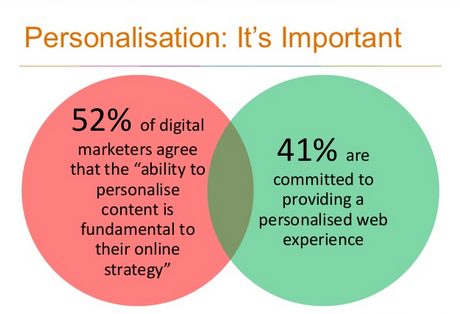Yes, the balance between personalization and privacy has become a significant concern in the realm of digital advertising. The tension arises from the desire to deliver personalized, targeted content to users for a more engaging experience while respecting their right to privacy. Here are key aspects of the personalization vs. privacy debate in digital advertising:

Data Collection and Consent:
Personalization often relies on extensive data collection about users’ online behaviors, preferences, and demographics. Privacy concerns arise when users are unaware of the extent of data collection or when their consent is not adequately obtained.
User Tracking and Profiling:
Digital advertising often involves tracking user activities across websites to create user profiles for targeted ads. While this enables personalization, it raises privacy concerns about the extent of tracking and the creation of detailed user profiles without their explicit consent.
Ad Targeting and Behavioral Advertising:
Behavioral advertising uses algorithms to analyze user behavior and target them with ads based on their interests and online activities. While this can enhance the relevance of ads, users may feel their privacy is invaded if the targeting is too specific or intrusive.
Regulatory Compliance:
Privacy regulations, such as the General Data Protection Regulation (GDPR) in Europe and the California Consumer Privacy Act (CCPA) in the United States, have introduced stricter rules on how user data is collected, processed, and shared. Advertisers must comply with these regulations to ensure user privacy rights are respected.
Consumer Trust and Perception:
Excessive personalization efforts can erode consumer trust if users feel that their privacy is being compromised. Building and maintaining trust is crucial for advertisers, and respecting privacy concerns is integral to achieving this.
Anonymization and Data Security:
Advertisers need to prioritize data security and anonymization techniques to protect user identities and sensitive information. The mishandling of personal data can lead to breaches, damaging the trust between advertisers and users.
Opt-In and Opt-Out Mechanisms:
Advertisers should provide clear and easy-to-use mechanisms for users to opt in or opt out of data collection and personalized advertising. Giving users control over their preferences enhances transparency and respects their privacy choices.
Contextual Targeting:
Contextual targeting focuses on delivering ads based on the content of the webpage rather than individual user behavior. This approach minimizes privacy concerns associated with personalized targeting but may not be as precise in delivering relevant content.
Ethical Considerations:
Advertisers face ethical considerations regarding the use of personal data. They must carefully balance the benefits of personalization with the ethical responsibility to protect user privacy and avoid manipulative practices.
Emerging Technologies:
Emerging technologies like artificial intelligence and machine learning enable more sophisticated personalization. Advertisers must consider the ethical implications of using these technologies and ensure that their applications align with privacy standards.
Self-Regulation by Industry:
Advertisers and industry stakeholders can contribute to addressing privacy concerns through self-regulation. Establishing and adhering to industry-wide standards and best practices can help build a more ethical and privacy-conscious advertising ecosystem.
In conclusion, the tension between personalization and privacy in digital advertising requires a careful and transparent approach. Striking the right balance involves respecting user consent, complying with privacy regulations, and adopting ethical practices that prioritize user trust and data security. As privacy concerns continue to grow, advertisers must evolve their strategies to ensure responsible and respectful use of consumer data in the digital advertising landscape.
